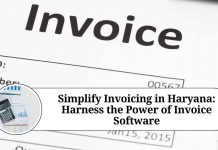Introduction
In today’s fast-paced digital era, traditional paper-based invoicing methods are quickly becoming outdated and inefficient. Electronic invoicing, also known as e-invoicing, has emerged as a revolutionary solution to streamline business operations, enhance financial management, and foster stronger relationships between businesses and their clients. In this blog post, we will explore the benefits of electronic invoicing solutions and how they can transform your business.
- Efficiency and Cost Savings: Electronic invoicing eliminates the need for manual processes, paper-based documents, and postage expenses associated with traditional invoicing methods. By automating the invoicing process, businesses can significantly reduce the time and effort required to generate, send, and process invoices. This increased efficiency translates into cost savings, as fewer resources are needed to manage invoicing tasks, allowing employees to focus on more value-added activities.
- Faster Payments: One of the major advantages of electronic invoicing is the speed at which payments can be received. Traditional invoicing often involves delays in delivery and processing, resulting in longer payment cycles. With e-invoicing, invoices are sent instantly and can be delivered directly to the recipient’s inbox. This expedites the entire payment process, enabling businesses to receive payments faster and improve cash flow.
- Improved Accuracy and Reduced Errors: Manual data entry is prone to human errors, which can lead to discrepancies and payment delays. Electronic invoicing solutions eliminate the need for manual data input by automatically capturing and transferring information between systems. This reduces the risk of errors, ensuring accurate invoicing and improving overall financial management.
- Enhanced Security and Compliance: Electronic invoicing solutions offer robust security measures to protect sensitive financial data. Encrypted transmissions, secure servers, and user authentication protocols ensure that confidential information remains protected throughout the invoicing process. Furthermore, electronic invoicing helps businesses comply with tax regulations and audit requirements by maintaining accurate records and enabling easy access to historical invoices.
- Increased Visibility and Insights: By adopting electronic invoicing, businesses gain better visibility into their financial transactions. Real-time tracking of invoices allows for improved monitoring of payment statuses, ensuring prompt follow-ups and reducing the likelihood of unpaid invoices. Additionally, electronic invoicing solutions often provide reporting and analytics features that offer valuable insights into financial performance, enabling businesses to make data-driven decisions and identify areas for improvement.
- Eco-Friendly and Sustainable: Electronic invoicing significantly reduces paper consumption, contributing to a more sustainable business environment. By eliminating the need for physical documents, businesses can minimize their environmental impact and promote green practices. This not only aligns with corporate social responsibility goals but also enhances the reputation of the business among environmentally conscious clients and stakeholders.
Conclusion
In the digital age, electronic invoicing has emerged as a transformative solution for businesses seeking to optimize their invoicing processes and drive efficiency. With benefits such as improved accuracy, faster payments, enhanced security, and increased visibility, adopting electronic invoicing solutions can revolutionize financial management and streamline business operations. Embracing e-invoicing not only saves time and resources but also positions businesses for growth and success in a highly competitive marketplace. So why wait? Take the leap into the world of electronic invoicing and unlock a world of possibilities for your business.
Read more useful content:
Frequently Asked Questions (FAQs)
Q. What is electronic invoicing?
Electronic invoicing, or e-invoicing, is the process of generating, sending, receiving, and processing invoices electronically, using digital formats and technologies. It eliminates the need for paper-based invoices and manual handling, streamlining the invoicing process and improving efficiency.
Q. How does electronic invoicing work?
Electronic invoicing involves creating invoices in a digital format, typically using specialized software or online platforms. The invoices are then sent electronically to the recipients through various channels such as email, Electronic Data Interchange (EDI), or web portals. The recipients can access and process the invoices digitally, facilitating faster payment and seamless record-keeping.
Q. What are the benefits of electronic invoicing?
Electronic invoicing offers numerous benefits, including:
Improved efficiency and cost savings
Faster payments and improved cash flow
Reduced errors and enhanced accuracy
Enhanced security and compliance
Increased visibility into financial transactions
Environmental sustainability
Q. Are electronic invoices legally recognized?
Yes, electronic invoices are legally recognized in many countries around the world. Governments and regulatory bodies have established frameworks and standards to ensure the authenticity, integrity, and legal compliance of electronic invoices. It is important to comply with the specific regulations of the country or region where your business operates.
Q. Are electronic invoices secure?
Yes, electronic invoicing solutions employ various security measures to ensure the confidentiality, integrity, and availability of invoicing data. These measures may include encryption, secure servers, authentication protocols, and data backup systems. It is important to choose a reputable e-invoicing solution provider that prioritizes data security.
Q. Can electronic invoicing integrate with accounting systems?
Yes, electronic invoicing solutions can often integrate seamlessly with accounting systems and enterprise resource planning (ERP) software. This integration enables automatic data transfer, eliminating the need for manual data entry and ensuring consistent and accurate financial records.
Q. Do electronic invoices require the recipient’s consent?
In some jurisdictions, electronic invoicing may require the recipient’s consent to receive invoices electronically. This consent can be obtained through explicit agreements or opt-in processes. It is important to understand the legal requirements regarding consent in your operating jurisdiction.
Q. Can electronic invoicing be used for international transactions?
Yes, electronic invoicing is well-suited for international transactions. It eliminates geographical barriers and enables businesses to send and receive invoices globally, regardless of the recipient’s location. However, it is important to consider any specific legal and regulatory requirements of the countries involved in international invoicing.
Q. Can electronic invoicing be used by small businesses?
Yes, electronic invoicing is beneficial for businesses of all sizes, including small businesses. In fact, it can be particularly advantageous for small businesses as it helps reduce administrative tasks, improve efficiency, and accelerate payment cycles.
Q. How do I choose the right electronic invoicing solution for my business?
When choosing an electronic invoicing solution, consider factors such as your business requirements, scalability, ease of use, integration capabilities, data security measures, customer support, and pricing. It is recommended to evaluate multiple solutions, read reviews, and seek recommendations to find the solution that best fits your business needs.

































